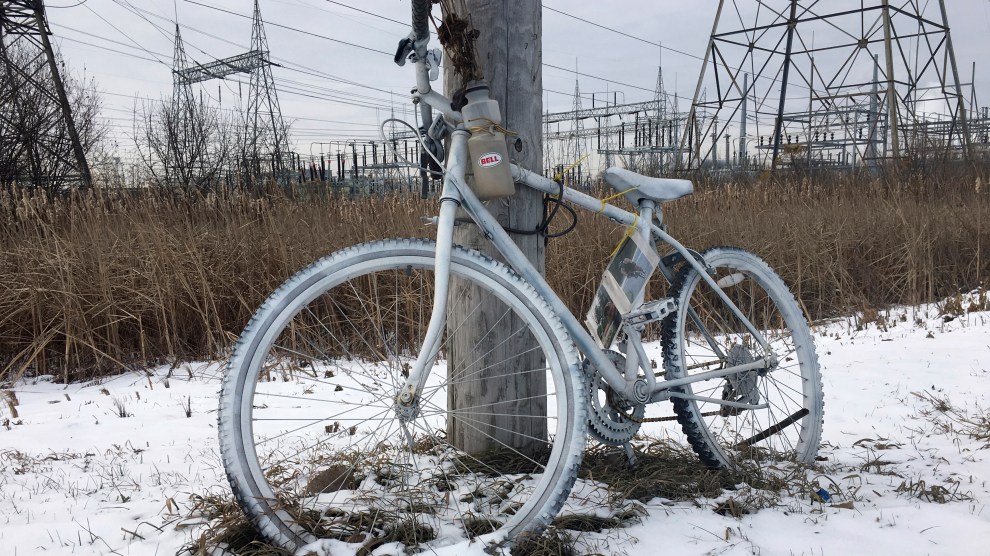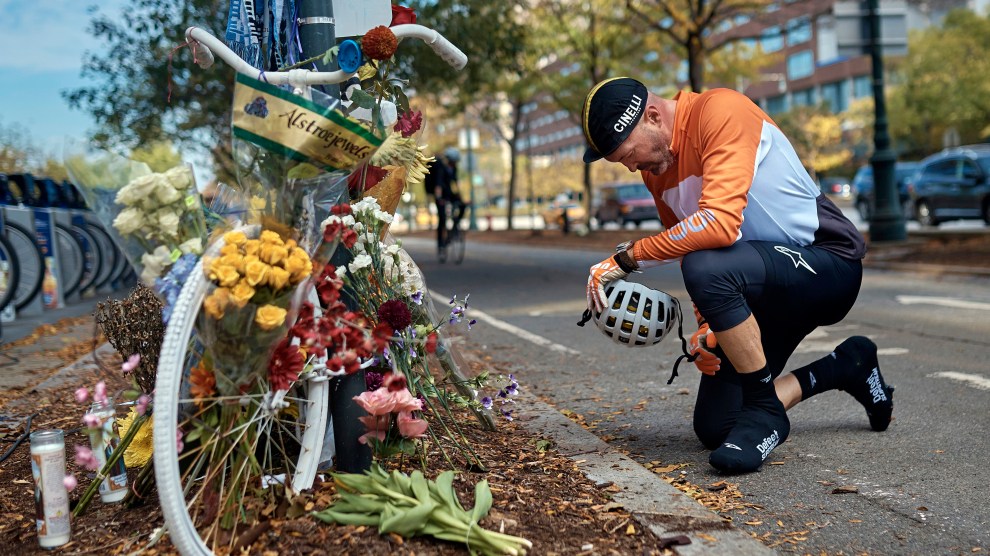
A ghost bike commemorates a cyclist's death in Newport, Minnesota.Bob Shaw/Pioneer Press/AP
This year in New York City, traffic deaths were roughly on a par with shooting deaths. As of Christmas, 246 people were killed with guns in 2022, Gothamist reports, compared with 247 people killed in car crashes. This isn’t unique to New York. The National Highway Traffic Safety Administration has not yet released full data on 2022 traffic fatalities, but the first half of the year saw a slight increase in traffic deaths over the first half on 2021. In 2021, an estimated 42,915 people died on America’s roadways, according to the NHTSA—a 10.5 percent increase over the year prior. Last year, there were 45,090 total gun deaths in the United States, according to Gun Violence Archive, including 24,090 suicides.
In other words, you are much more likely to die in a car crash than to be killed with a gun by someone other than yourself.
Both of these crises are preventable. My colleague Mark Follman has written extensively about how measures like red flag laws and behavioral threat assessment can prevent mass shootings. Gun violence gets a lot of attention from politicians and the media, and that’s a good thing. Meanwhile, the car crisis is still only a budding concern. If you get your information from the New York Post or Fox News, you’re more likely to be constantly frightened by the scepter of rising crime than by the very real possibility of being killed by a speeding car.
Anecdotally, it has been obvious to me of late that things are bad. In the span of a single week, I witnessed two car crashes while riding my bike in Denver. Earlier this month, an SUV struck and killed a cyclist who was crossing a major roadway in a crosswalk. The driver fled the scene and has not been found. The cyclist, Logan Rocklin, died on the day that his wife, who is battling leukemia, received a stem cell transplant.
Less than two weeks later, Ainslie O’Neil, who rode everywhere with a milk crate on the back of her bike, just like me, was struck and killed at a treacherous intersection three blocks from where I live. Now, I pause for an extra moment in case there are any red-light runners on the 40 mile-per-hour boulevard that bisects the ostensible “neighborhood bikeway” I ride on to get to my favorite coffee shop.
The data support my sense of unease. According to the city’s Vision Zero initiative, there have been 82 traffic deaths in Denver in 2022. In 2021, that number was 84—up from 57 the year prior. By way of comparison, there were 73 homicides in Denver in 2022, 96 in 2021, and 95 in 2020.
The fate of New York’s gubernatorial election was all about “crime” and a media that yelled about it. Maybe I should try to go hoarse in 2023.


















